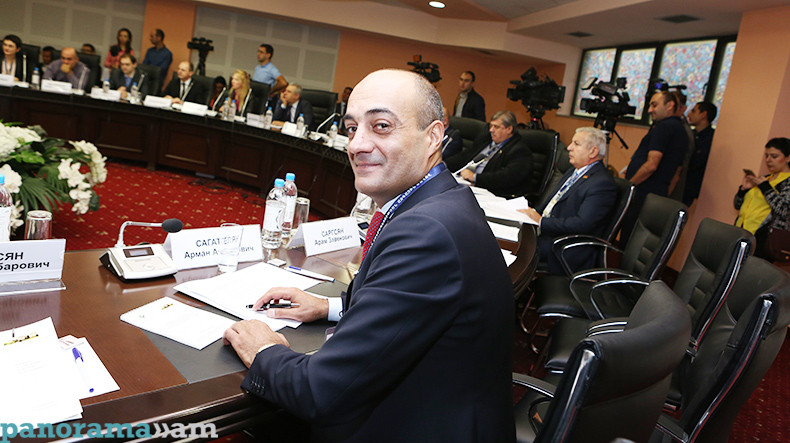
Karabakh conflict has always featured hybrid warfare elements – MP
The Nagorno-Karabakh conflict has always featured hybrid warfare elements. With a prevalence of military component in its initial stage, the conflict gained hybrid warfare aspects after 1994, with information and propaganda elements dominating the field, an Armenian parliamentarian said at the CSTO PA inter-parliamentary hearings on the ways to counteract hybrid wars underway in Yerevan, Armenia.
“I believe during this whole period we have acted successfully and properly pursued our interests. Speaking about the April war and the work done in that period, we can state that we are in a better position than Azerbaijan, which is an encouraging fact,” MP Arman Saghatelyan told the reporters at the hearing on “Issues of effectively countering collective security system to hybrid wars in the contemporary circumstances”.
The official also highlighted the need for the CSTO member states to have unified approaches and methods to face the challenges in hybrid wars.
“Obviously, the military component is gradually losing its position to other forms of influence – cyber attacks and information-psychological factors. All this has a greater part in conflicts, thus we are ready to discuss the issue with our partners,” he said, stressing the need to unified approaches to face the common challenges.
Former Defence Minister of Armenia, Vagharshak Harutyunyan, in attendance of the discussion, highlighted that fact that the hybrid warfare is backed by the military power of a state.
“If a country lacks military power, it cannot run a hybrid war. As far as Armenia is concerned, we have managed to ensure our security for 25 years in spite of the fact that Azerbaijan poses a military threat to us and has petrodollars. Regardless its powerful economic potential, that country is unable to solve the problems it is facing. This comes to show that the Armenian side is able to ensure its security with all methods, starting from military to non-military channels,” the former official said.
Mr. Harutyunyan noted that two states pose a military threat to Armenia – Turkey and Azerbaijan. Armenia has a ceasefire agreement with the first one, but a peace agreement is not signed. Regarding Turkey, on one hand Armenia has no diplomatic ties with that country and on the other hand, Armenia has been under a blockade by that state.
“This is a use of force and a threat of war in terms of the international law, as evidenced by the latest statement of the Turkish defense minister on the Artsakh conflict,” he concluded.
Newsfeed
Videos






























